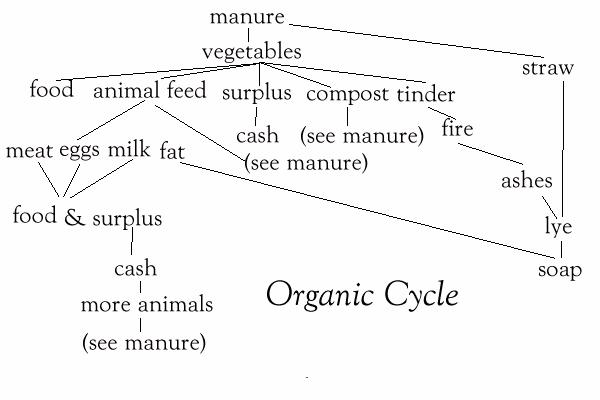

So where does gardening end and farming begin? If you have a balcony with planters on, or 100 acres of wheat the distinction is easy, but for some people a couple of acres and a sign outside that says "Fresh Organic Vegetables for Sale" is right on that line between the two. My mother once worked in a place that had literally acres of greenhouses, yet they called it a Market Garden. And it matters, because of how you think of yourself. Farmers can be gardeners too of course, but the outlook is different. Gardening is a hobby, a passion, but farming is a lifestyle. A lot depends on whether you sell your surplus or not, and perhaps if animals are part of the equation. When we talk about natural growing on this Website it refers to any scale of it, but as we live on a small farm, and are aiming for self-sufficiency, the emphasis is on the whole cycle, as shown in the diagram above.

|
Why Organic?
The Cornerstones of Organic GrowingNatural PesticidesGood Soil The soil your plants grow in is their bed and their food. It needs to be comfortable and nourishing. You will need to add compost and manure to it in a variety of forms, and it helps enormously if you have animals that can provide you with a regular supply of manure. Anyone can make compost from kitchen and garden waste. Crop Rotation Planting the same crop continually in the same place is an open invitation to pests and diseases. Planning ahead and rotating crops carefully can reduce these problems dramatically. Companion Planting Beneficial Wildlife
Links
Join my e-mail list for Organic Growers, both gardeners and farmers, subscribe now to Natural Grower
|